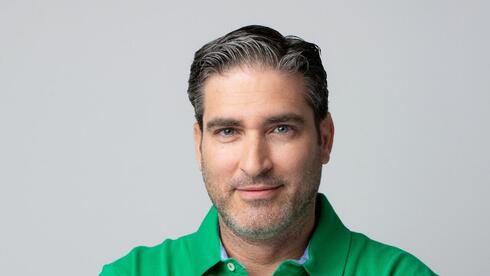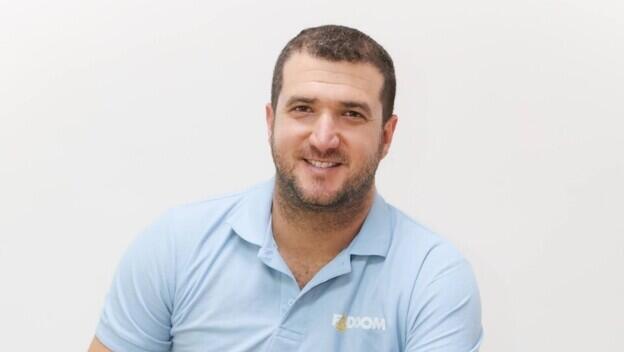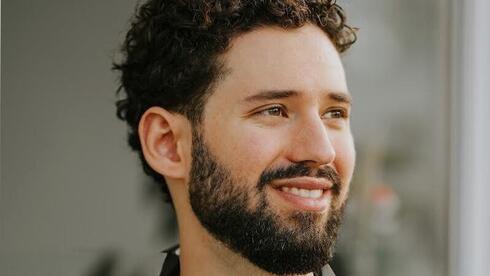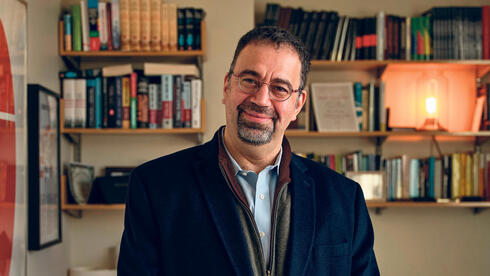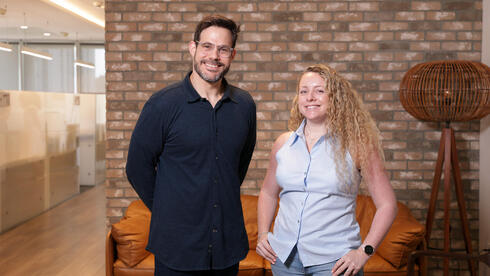
"A CEO has to be a doctor, politician, parent, and economic advisor"
As part of Calcalist and Poalim Tech's Growth+ project, Noam Schwartz from ActiveFence and Shlomit Steinberg Koch from Predicta Med discussed how to turn managers into leaders.
Noam Schwartz, CEO and co-founder of ActiveFence, and Shlomit Steinberg-Koch, CEO of Predicta Med, shared their insights on leadership and crisis management during a Growth+ project meeting organized by Calcalist and Poalim Tech.
The conversation was held as part of the series of 1:1 meetings between experienced entrepreneurs and early-stage start-up companies, with the goal of providing advice, support, and knowledge on entrepreneurship, creativity, managing start-ups, and building companies for growth.
1 View gallery
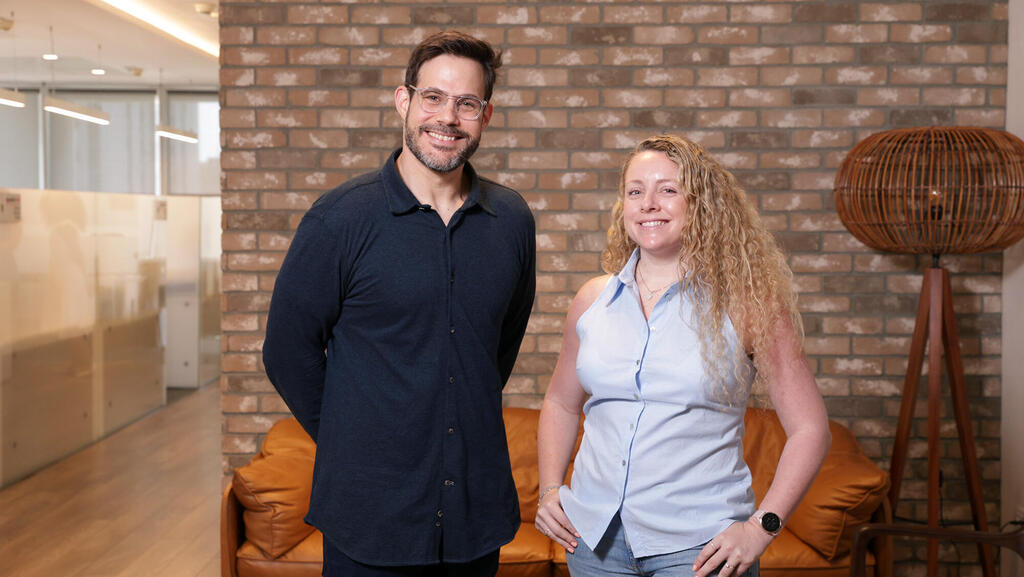

ActiveFence CEO Noam Schwartz (left) & Predicta Med CEO Shlomit Steinberg-Koch
(Photo: Orel Cohen)
Noam, tell us about a crisis you encountered at the beginning and what you learned from it that can help young entrepreneurs.
"I had a company in 2012, and we built a product that needed to be very expensive for the business model to succeed, but we targeted a market that couldn't afford it. All the basic assumptions we made were flawed. About a year after founding the company, an investor who was also a mentor challenged all my assumptions. I felt devastated, but it led us to make fundamental changes that ultimately led to success and the sale of the company."
Shlomit, what crisis did you encounter this year?
"Everything that happened in Israel this past year has been detrimental to any company. It made us consider moving the company to the U.S. When the judicial reform began, I asked a major accounting firm if they recommended this move, and they said no. However, with the current war, I asked again, and they said yes. This is very sad for me because I am a Zionist. I founded an Israeli company, we are funded by the Innovation Authority here in Israel, and all our R&D is here. But it was a tough year; some workers are in the IDF reserves, and you have to manage a routine amidst everything happening."
Noam, what advice did you give her?
"In recent years, the role of the CEO has changed dramatically due to various crises, from the pandemic to the current war. As a CEO in 2020-2021, I had to make health-related decisions without any expertise. You have to make decisions from a place where people expect you to be responsible for their health and that of their families. This was not part of my job description. Now, with the war, there were missiles fired on Tel Aviv and demonstrations against judicial reform, with people wanting to protest during work hours. These issues are far removed from our business activities. You have to be a doctor, politician, parent, and economic advisor. It's a demanding role, and anyone who can't handle it won't succeed as a leader in this climate."
What did you learn from each other?
Noam: “Shlomit asked me about the accuracy metrics important to our customers. We help companies ensure they don't have terrorist content, fraud, pedophilia, or other harmful materials. The model’s accuracy is measured in percentages, and it was an excellent question about what is important to customers and what is 'good enough.' It's not usually my first question, but it should be.”
Shlomit: “We are creating a platform to help doctors diagnose undiagnosed patients, mainly with autoimmune diseases, using AI. Since AI is never perfect, my question is about the threshold for starting to sell to customers. I learned that it’s acceptable in the early stages to give external support to the algorithm to provide the best possible result, knowing it won’t be 100% perfect.”
Share something interesting you learned about each other?
Noam: “I learned that Shlomit is considering moving to the U.S. because most of their customers are there.”
Shlomit: “I learned that Noam also has a medical company in addition to ActiveFence.”
Michal Kissos Hertzog, CEO of Poalim Tech, concluded: “In my conversations with entrepreneurs, I always talk about developing the ability to understand ahead of time where they would like to be in the future, what mistakes can be avoided, and what their future lessons are - with an emphasis on today. This ability allows entrepreneurs to write the path of their startup themselves. An entrepreneur who gives this ability a place, knows how to conduct themselves better and more correctly even in the face of unexpected or unplanned scenarios."




